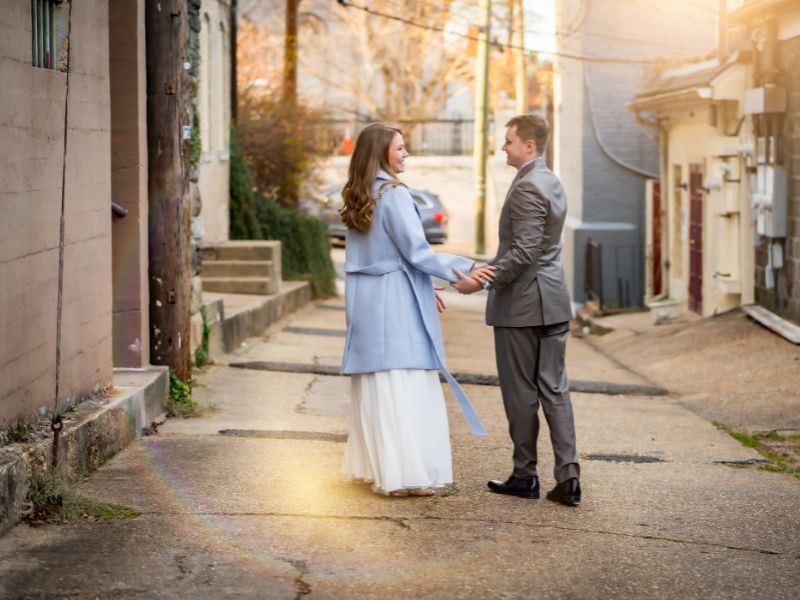Is Eloping Selfish?
Elopement has become a popular choice for couples looking to tie the knot in a more intimate setting. While some view it as a romantic escape, others question whether eloping is a selfish act. In this blog post, we will explore the various perspectives surrounding elopement, examining its implications on relationships, family dynamics, and personal desires.
Understanding Elopement
Before diving into the debate of whether eloping is selfish, it’s essential to understand what elopement truly means. Traditionally, eloping referred to couples running away to get married without informing their families or friends. However, in recent years, the definition has evolved. Today, elopement can encompass small ceremonies that prioritize intimacy over extravagance.
Couples choose to elope for various reasons: financial constraints, desire for simplicity, or even the wish to avoid the stress associated with planning a large wedding. Regardless of the motivation behind it, elopement signifies a couple’s commitment to each other above all else.
The Argument Against Eloping: Is It Selfish?
Critics of elopement often argue that choosing this path can be seen as selfish. Here are some common points raised by those who feel that eloping disregards family and friends:
1. Exclusion of Loved Ones
One of the most significant arguments against eloping is that it excludes family and friends from an important life event. Weddings are often viewed as communal celebrations where loved ones come together to witness and support the union of two people. By choosing to elope, couples may inadvertently hurt those who feel left out or unimportant.
2. Cultural Expectations
In many cultures, weddings hold deep significance and are steeped in tradition. Eloping can be perceived as dismissing these cultural norms and expectations. For families who place great value on elaborate ceremonies and rituals, an elopement may feel like a rejection of their heritage.
3. Emotional Impact
Eloping can also have emotional repercussions for both partners and their families. Parents may feel disappointed or hurt that they were not included in such a monumental occasion in their child’s life. This emotional fallout can lead to strained relationships if not addressed properly.
The Case for Eloping: A Personal Choice
On the flip side of the argument lies a compelling case for why couples should have the freedom to choose elopement without being labeled as selfish:
1. Prioritizing Love Over Tradition
For many couples, love is at the forefront of their decision-making process when it comes to marriage. They may believe that their commitment should be celebrated in a way that feels authentic to them—whether that’s through an intimate ceremony in nature or at a destination far from home.
Elopements allow couples to focus on what truly matters: their love for one another—without getting lost in the chaos of wedding planning or societal expectations.
2. Financial Considerations
Weddings can be incredibly expensive affairs; from venue rentals to catering costs and everything in between, expenses can quickly spiral out of control. For some couples, opting for an elopement allows them to save money while still celebrating their love meaningfully.
By choosing an intimate ceremony over a large wedding celebration, couples can allocate funds toward experiences they genuinely value—like travel or investing in their future together.
3. Reduced Stress
Planning a wedding often comes with immense pressure—from managing guest lists and seating arrangements to coordinating vendors and timelines. This stress can overshadow what should be one of life’s most joyous occasions.
Eloping offers couples an opportunity to bypass much of this stress while still committing themselves fully to each other—a refreshing alternative that prioritizes mental well-being alongside love.
Finding Balance: Including Family Without Compromising Vision
While some may argue against eloping due solely because it excludes loved ones from participation in traditional ceremonies; there are ways around this concern:
1. Host A Celebration Later
Couples who choose an intimate ceremony through an elopement might consider hosting another gathering later on—a reception or party where family members can celebrate together without compromising on personal desires during vows exchanged privately.
This approach allows partners both intimacy during their actual marriage commitment while still honoring relationships with family members afterward—striking balance between personal vision & communal celebration!
2 . Communicate Openly
Open communication plays key role when navigating sensitive topics like these! Couples should discuss plans openly with parents/siblings/friends beforehand so everyone understands motivations behind decision-making process—and hopefully gain support rather than resentment!
Conclusion: A Personal Decision
Ultimately whether one views it as selfish depends largely upon perspective! Each couple must weigh pros/cons based upon individual circumstances & values held dear by themselves (and those closest).
Eloping isn’t inherently selfish; rather it’s about prioritizing what matters most within relationship itself! As society continues evolving towards more diverse expressions love—elopements will likely remain valid option chosen by many seeking authenticity amidst pressures surrounding traditional weddings!
Discover more blog articles!

